Machines thinking? Yeah, right. That's what we used to say, laughing off the idea like it was straight out of a sci-fi novel.
But today, it's not just happening; it's changing the game. And not in ways you'd expect. We're not talking robots taking over the world. We're talking about something far more subtle, yet incredibly powerful.
Enter GPT-4, the brainchild that's slipping into roles we never imagined for machines. From churning out stories to solving complex problems, it's like it's got a mind of its own. But here's where it gets even more interesting.
This isn't about machines working alone. It's about them teaming up with us, enhancing what we do, making us better at our jobs, and spicing up our world in ways we're just beginning to explore.
So, what's this all about?
Simply put, it's the dawn of a new era in sectors like customer service, marketing, legal, entertainment, and beyond. GPT-4 is not just another tech trend. It's a revolution, subtly weaving its way into the fabric of our daily lives and work, promising a future brighter than we could have imagined. Welcome to the guide that unveils this journey.
Let's dive in.
Where can GPT4 be Used?
GPT-4, a super smart anything-goes machine, can be used pretty much everywhere. From customer service to manufacturing, from marketing to the legal sector, and even in entertainment, it's spicing things up.
This little helper is making things faster, smarter, and just better in many different fields. Whether it's answering tricky questions, spotting manufacturing glitches, creating winning ad campaigns, digging out relevant legal precedents, or crafting real-to-life game dialogues, GPT-4 is there.
Let's dive deeper and see exactly how it's turning the tide in these areas. Buckle up, because this is going to be interesting.
Healthcare
In healthcare, GPT-4 is a game-changer. First off, it's stepping in to help patients. Think of it like a super smart chatbot that answers health questions any time of the day. It's making things easier for people to get help when they can't see a doctor right away.
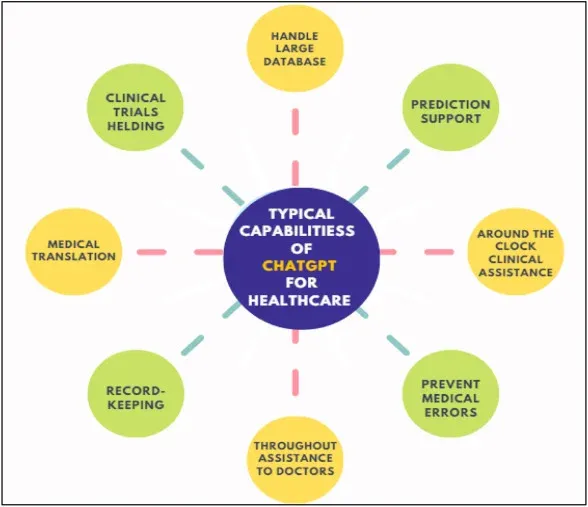
Then, there's drug discovery. GPT-4 can go through tons of research fast to find potential cures for diseases. This means we could get breakthroughs quicker and cheaper.
Medical documents are another area. Doctors spend hours typing up notes. GPT-4 can do this in minutes. It listens, understands, and writes down everything that’s important. This frees up doctors to spend more time with their patients.
Last, GPT-4 can look at health records to find patterns. It might spot a disease trend faster than a human. This can lead to better ways to treat or even prevent diseases.
So, GPT-4 in healthcare is all about making things easier, faster, and better for everyone. Whether it's answering questions, finding new cures, handling paperwork, or spotting trends, it's making a big difference.
Education
In education, GPT-4 is like a personal tutor that’s always there. Students can ask it anything, anytime, and it explains things in a way that makes sense. This is great for learning at your own pace.
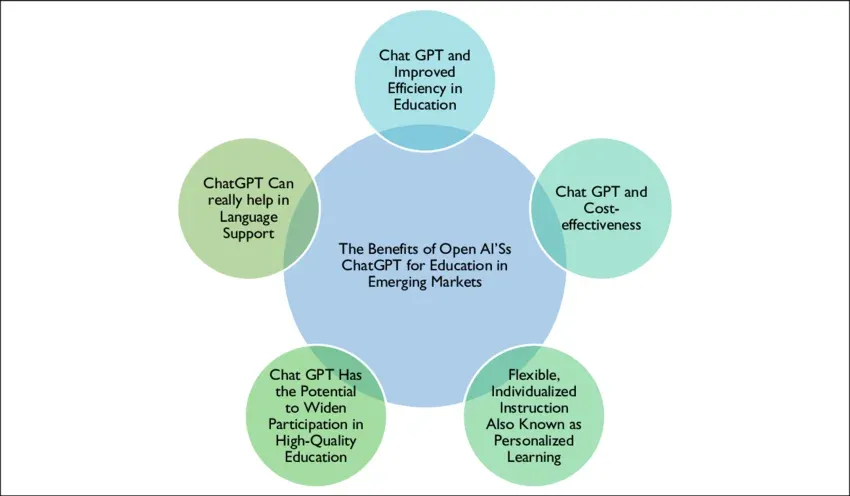
Grading papers and tests takes teachers a lot of time. GPT-4 can help. It can read and grade assignments quickly. This means teachers have more time to actually teach and help students one-on-one.
Creating lessons and finding materials is another task. GPT-4 can search through tons of information to find exactly what's needed. It can even help come up with new ways to teach something that might be tough to understand.
For students who need extra help, GPT-4 can create personalized learning plans. It looks at what they’re good at and what they struggle with. Then, it comes up with a plan just for them.
Basically, GPT-4 is like having an extra teacher around. It helps students learn better, gives teachers more time, and makes education more tailored to each person’s needs.
Finance
In finance, GPT-4 is like having a super-smart financial buddy. It can look at tons of market data and make predictions about stocks. This helps people make smarter investment choices without having to dig through all that data themselves.
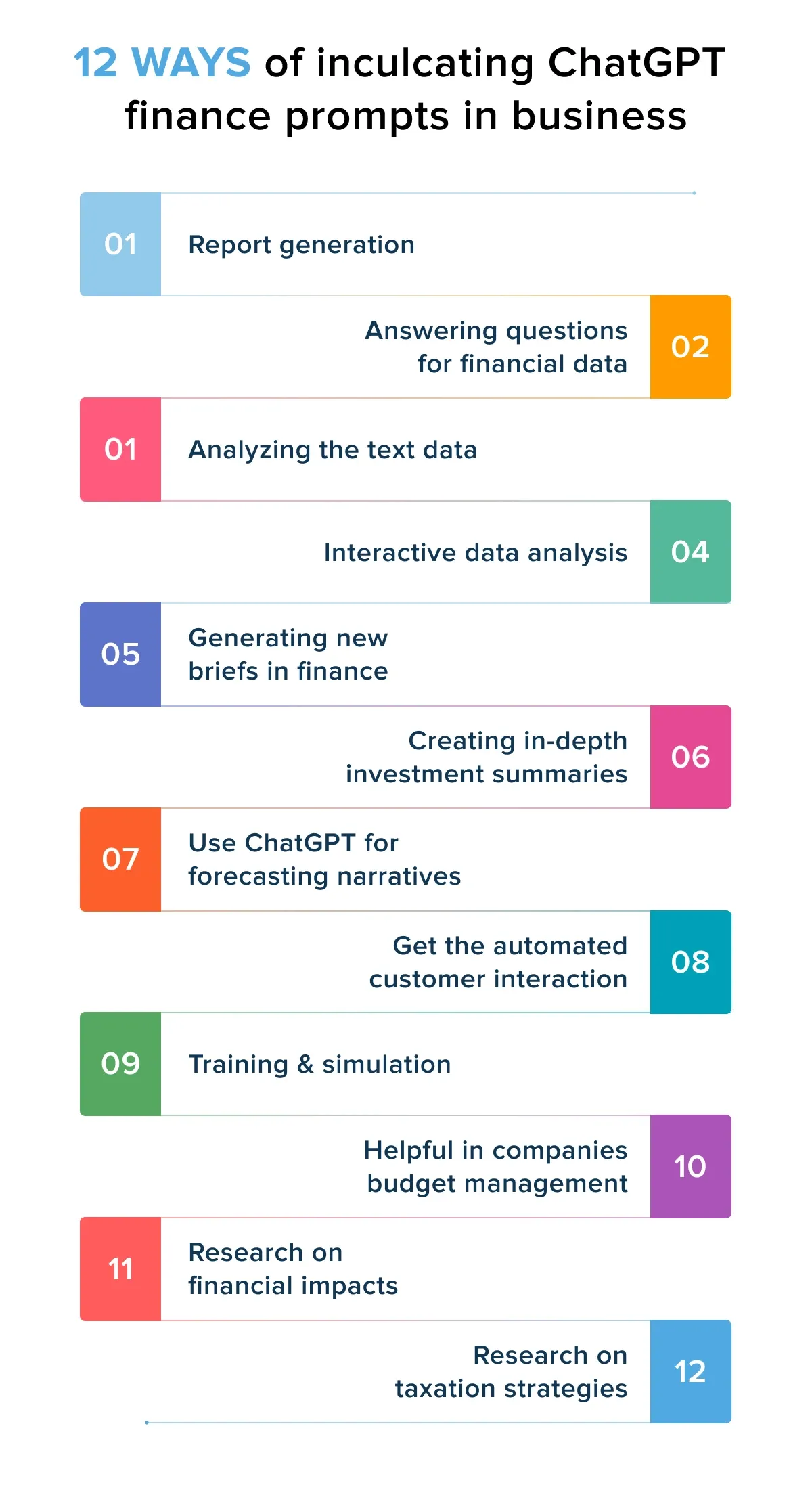
Then there's personal finance. GPT-4 can offer advice tailored just for you. Whether it's saving money, picking insurance, or planning for retirement, it sorts through options to find what best matches your goals.
Spotting fraud is a big deal too. GPT-4 can scan transactions in real-time to catch anything fishy. This means banks and customers can stay a step ahead of scammers, keeping money safer.
Risk management is another area. Companies want to avoid big financial surprises. GPT-4 can predict risks by analyzing market trends and news. This helps companies prepare better for the future.
So, GPT-4 in finance means better investments, personalized advice, safer money, and fewer risks. It's like having an expert in your corner, helping you navigate the financial world more easily.
Customer Service
In customer service, GPT-4 is changing the game. It's like an always-ready helper that can chat with customers anytime. Got a question or a problem? GPT-4 can give you an answer quickly, without making you wait.
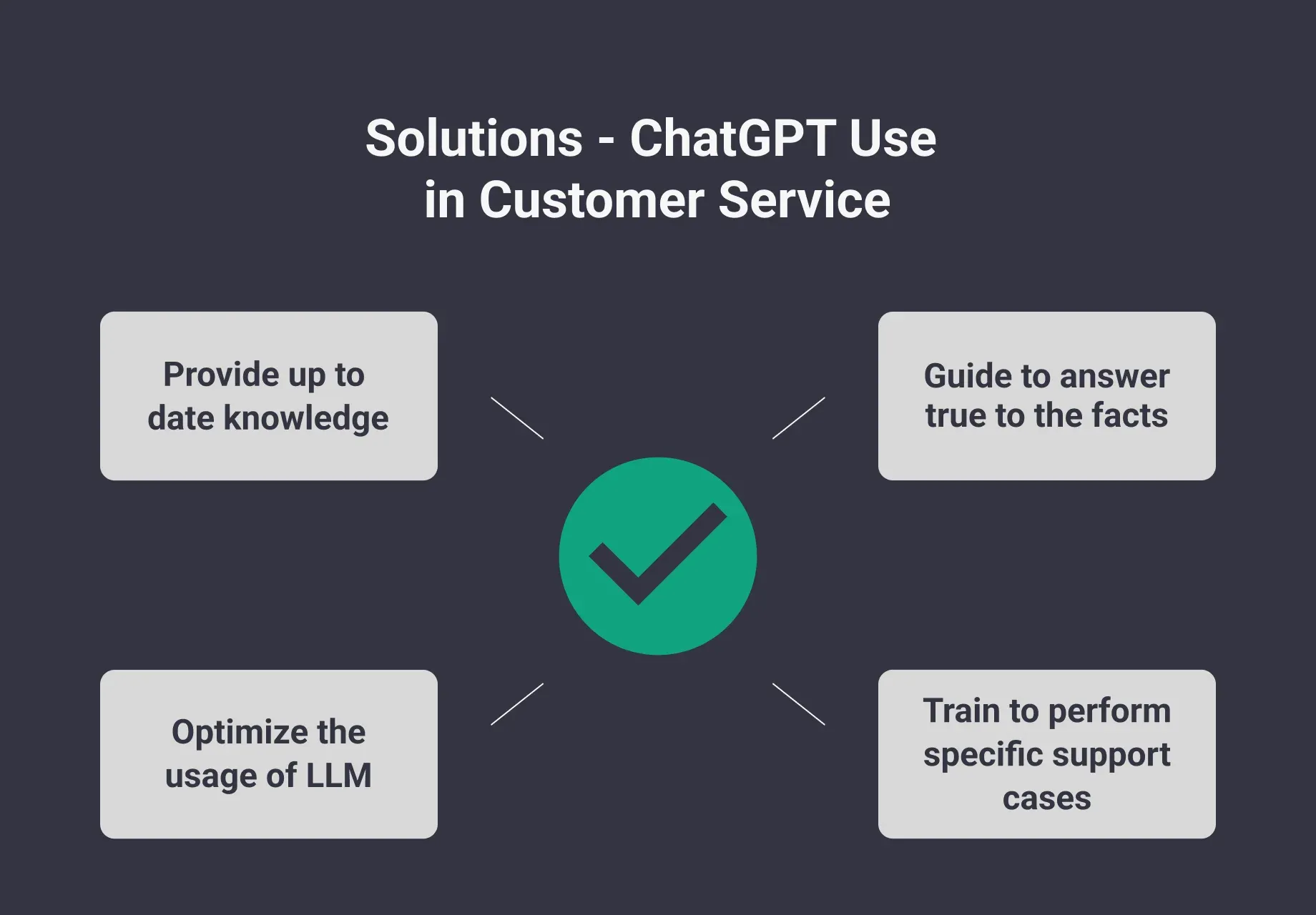
It's not just about answering questions, though. GPT-4 can also make your experience better by suggesting products or services that match what you need. Ever get those "you might also like" suggestions? That's GPT-4 at work, helping you find what you want without the hassle.
Plus, it can keep track of FAQs. So, when a lot of people start asking the same thing, GPT-4 updates its answers to make sure everyone gets the most up-to-date info. This means less confusion and happier customers.
And for businesses, having GPT-4 handle routine questions frees up their human team to tackle the tougher problems. This way, when you really need to talk to a person, they can give you their full attention.
So, GPT-4 in customer service means faster answers, personalized help, and better information for everyone. It keeps things running smoothly so you can get on with your day.
Manufacturing
In manufacturing, GPT-4 can be a hidden helper. It analyzes processes to find efficiencies. Say, there's a machine that's always breaking down. GPT-4 spots the patterns and figures out how to fix the issue. This avoids downtime and saves money.
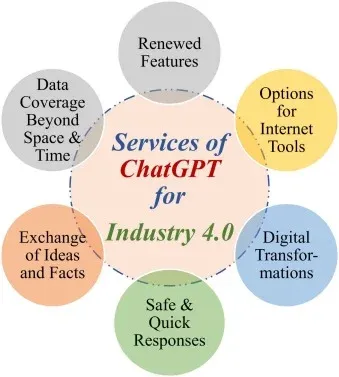
Quality control is another big job. Factories need to make sure every product is perfect. GPT-4 can monitor the manufacturing line, spot defects, and even suggest fixes. This means less waste and happier customers.
Then there's supply chain management. GPT-4 looks at sales and inventory data to predict future needs. It helps to ensure that there are enough raw materials to keep the production line going, and enough finished goods to fill orders.
Another way GPT-4 helps is by forecasting. It uses market trends and historic patterns to predict future demand. This helps factories plan their production better.
Overall, GPT-4 in manufacturing means more efficient processes, better quality control, smarter supply chain management, and accurate forecasting. It’s about making sure factories work as smoothly as possible. So, products get made faster, cheaper, and better.
Marketing and Advertising
In marketing and advertising, GPT-4 is making a big splash. It helps to understand what customers want. By analyzing data, it can pinpoint trends, likes, and dislikes. This helps companies create products and ads that people really care about.
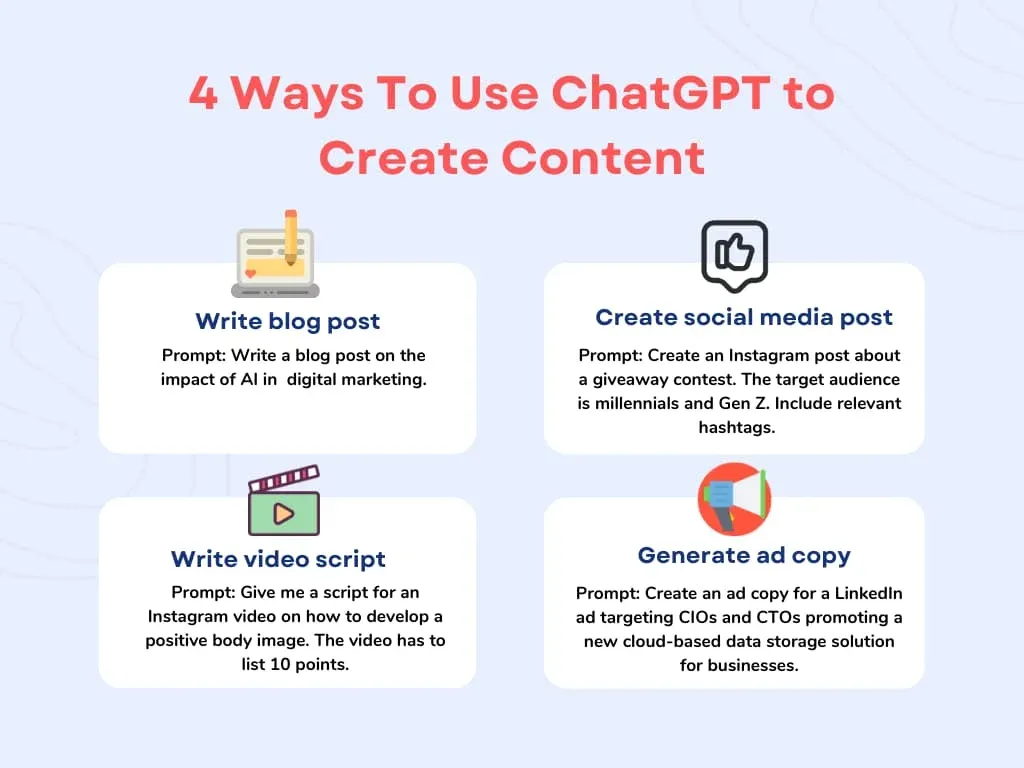
Creating content is another big thing. GPT-4 can write catchy ad copies or engaging blog posts. It can even tailor content to appeal to specific audiences. This means more relevant content, and more interest from potential customers.
Then there's campaign planning. GPT-4 can analyze past campaigns to see what worked and what didn’t. It uses this to suggest strategies for more successful future campaigns. No more guesswork!
For digital ads, GPT-4 can optimize bids and placements in real time. It constantly monitors performance and adjusts on the fly to get the best results.
Also, it can personalize customer interactions. It helps tailor emails, recommendations, and more to suit each person's tastes and needs.
So, GPT-4 in marketing and advertising means better understanding of customers, engaging content, smarter campaigns, efficient ad spending, and personalized customer experience. It's all about connecting more effectively with the audience.
Legal Industry
In the legal industry, GPT-4 acts like a smart assistant for lawyers. Imagine having to go through loads of legal documents. It's tiring, right? GPT-4 can scan and analyze these documents quickly. This means lawyers can find important details or similar cases much faster.
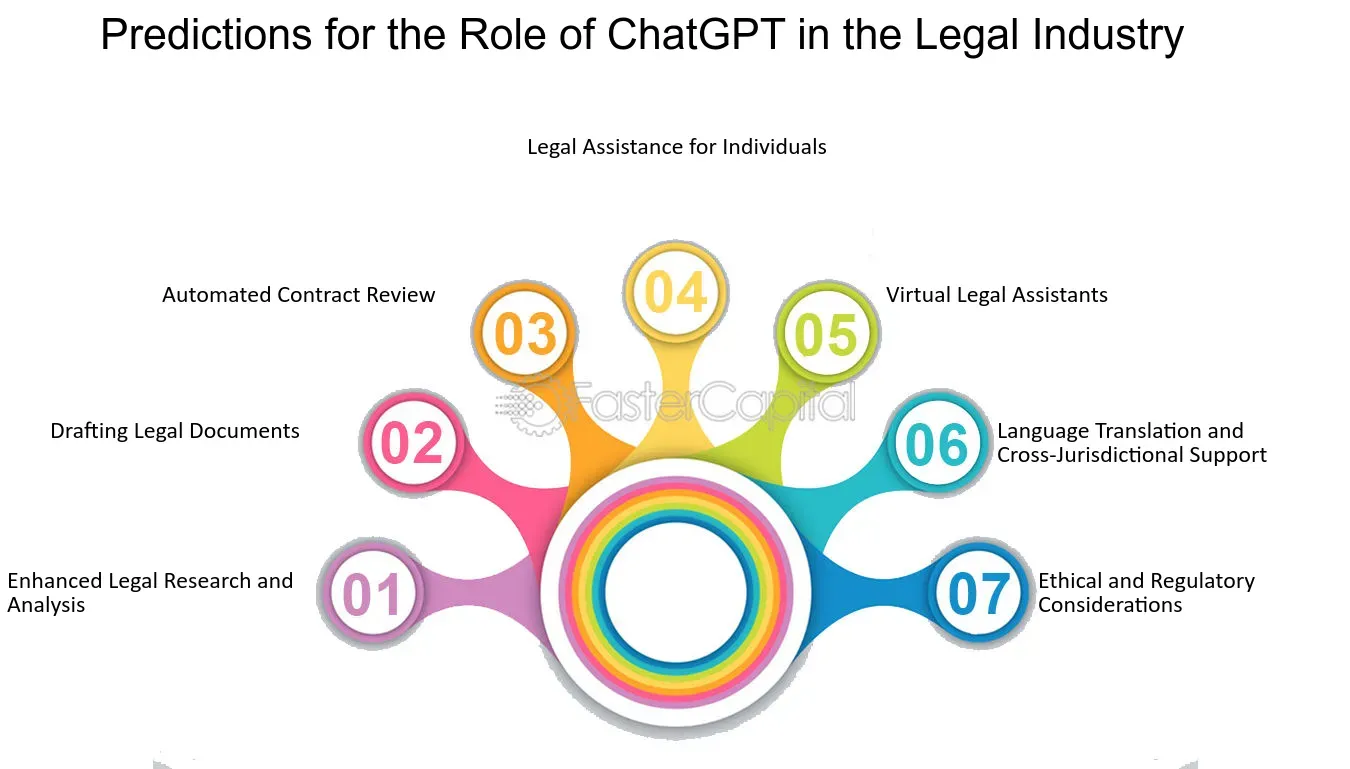
When it comes to writing, GPT-4 helps draft legal documents. From contracts to briefs, it ensures the language is accurate and to the point. This saves a lot of time and reduces human errors.
Research is another big area. Law involves staying updated with lots of cases and laws. GPT-4 can sift through legal databases to find relevant case laws and statutes. This makes research much less daunting.
It can also predict case outcomes. By analyzing past cases similar to the current one, GPT-4 can give an educated guess on how a case might end. This helps in strategizing better.
Lastly, GPT-4 is great for simplifying legal jargon. It can explain complex legal terms in simple language. This is super helpful when lawyers need to explain things to clients who might not be familiar with legal language.
So, GPT-4 in the legal industry means quicker document handling, efficient drafting, faster research, smarter case strategies, and clearer communications. It's like a supercharged legal assistant.
Entertainment
In the entertainment industry, GPT-4 is like a backstage wizard. Video game developers use it to create realistic dialogues for characters. So, when you're having a conversation in your favorite game, that's GPT-4 making it feel real.
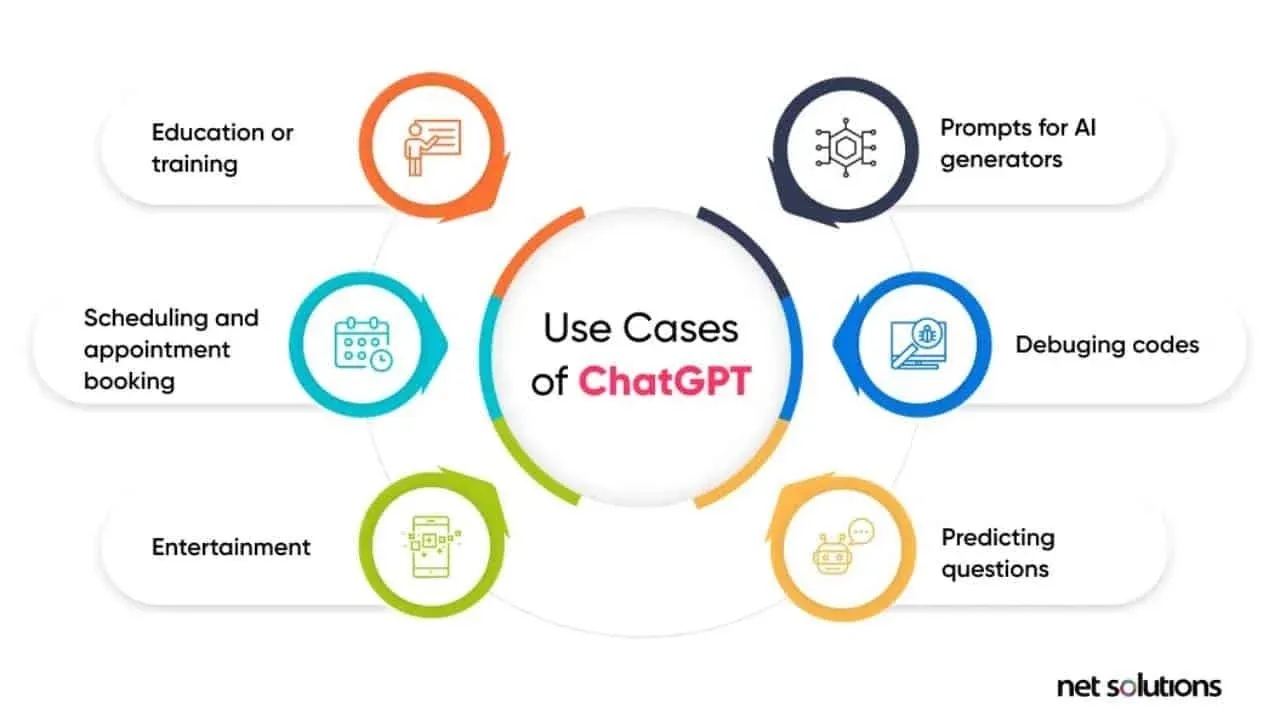
Music is another place where GPT-4 is helping. It can analyze trends to predict what kind of music will do well. For musicians, it's like having a crystal ball that tells you what your fans will love next.
Movie makers are using GPT-4 too. It helps generate scripts, particularly for short films and ads. It can analyze past movies to suggest the kind of stories that could be a hit.
For streaming platforms, GPT-4 personalizes recommendations. Ever find a new favorite show thanks to a recommendation? That's GPT-4 doing its magic, figuring out what you might like based on what you've watched before.
Also, it helps with animation. By analyzing movements, GPT-4 can assist animators in creating lifelike characters.
So, GPT-4 in entertainment means more engaging video games, better music predictions, faster script generation, personalized TV and movie recommendations, and realistic animation. It's adding a new dimension to how we experience entertainment.
Conclusion
So, we've seen that GPT-4 isn't just a fancy tool; it's a real game-changer across different sectors. From making factories run smoother to creating ads that click, from simplifying legal work to jazzing up entertainment, it's everywhere. And the cool part? It's making things easier, faster, and way more efficient.
Think about this: less time spent on grunt work means more time for the big ideas. GPT-4 isn't replacing people; it's empowering them to do more of what they're good at – being creative, strategic, and human.
In a nutshell, GPT-4 is like that versatile player in a team who can wear many hats and wear them well. It's pushing boundaries, changing games, and most importantly, it's just getting started. The future looks exciting with GPT-4 in the mix. Let's see where this journey takes us.
Suggested Reading: How to Implement GPT 4 in Your AI Systems?
Frequently Asked Questions (FAQs)
What other industries can GPT-4 be used in?
Besides the ones listed, GPT-4 shines in healthcare for diagnosing diseases, in education for personalized learning, and in agriculture for crop optimization. It's virtually limitless.
Can GPT-4 be used for complex decision-making?
Yes, GPT-4 can help in making complex decisions by analyzing vast data. However, human oversight is crucial to ensure ethical and nuanced decisions.
What are potential drawbacks or limitations of using GPT-4?
Its main limitations include potential biases from training data and a lack of emotional understanding, requiring careful and considered application.
How will the widespread usage of GPT-4 affect the job market?
GPT-4 will likely shift the job market towards more creative and strategic roles by automating routine tasks, emphasizing the need for adaptability and continual learning.


